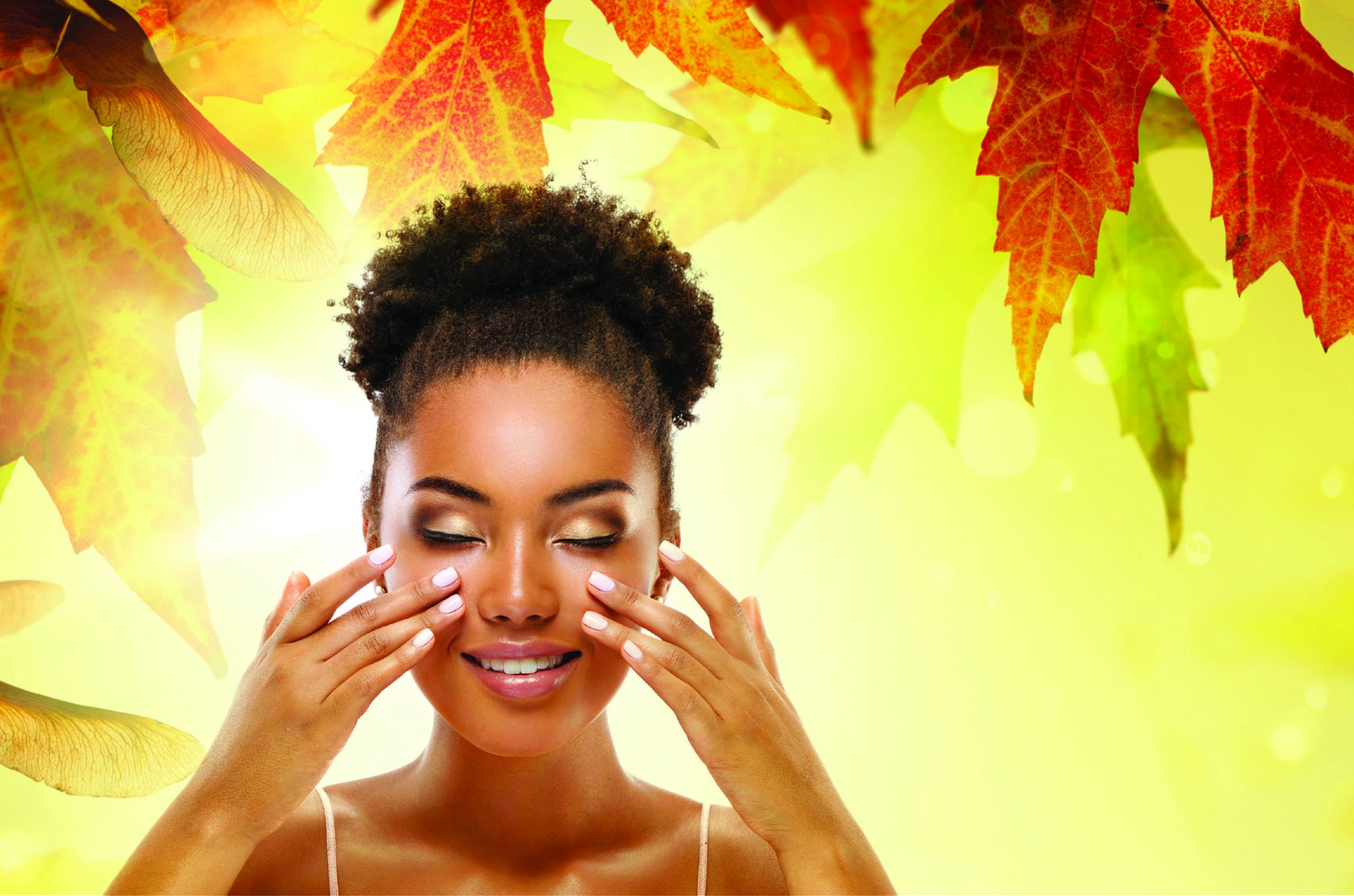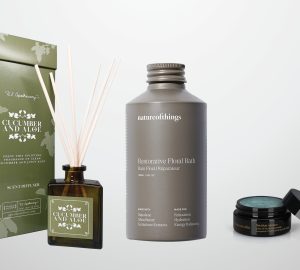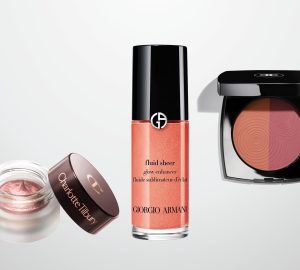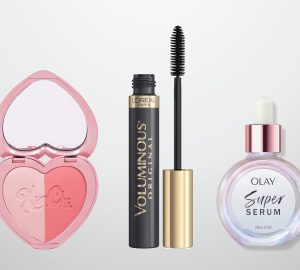Temperatures will start getting frosty soon, so it’s important to start prepping your skin for winter dryness and chill. Skin care professionals advise giving careful thought to your regimen now so you can reap the benefits of a more beautiful complexion in the coming seasons.
skin care refresher
Jackie Carr, RN, ANP-BC, a licensed esthetician and owner of Pur-One Medispa, says fall is a great time to address summer sun damage and rejuvenate the skin so it can stand the test of dry indoor air and winter temperatures. She offers services such as microneedling to stimulate the skin’s collagen layer and the SkinCeuticals Smart TCA Peel to help restore freshness and improve texture.
“The peel is great for removing discoloration caused by sun damage,” she says. “It also helps with skin laxity, pore size and fine lines and wrinkles, and you can alternate it with microneedling treatments.” Carr says your skin sheds dead cells for up to a week after the peel, and you can return to your normal skin care regimen after that. “Some good choices are gentle cleansers by Obagi, DefenAge serums and scrubs, and topical glycolic acids to help with skin cell turnover,” she notes.
Esthetician Lucy Greene of Nayak Plastic Surgery & Avani Derm Spa says intense pulse light therapy is another good option for improving skin at this time of the year. “It’s a laser treatment that mainly targets sun damage,” she explains. “It helps bring cells to the surface so they can shed and reveal a clearer complexion. It also stimulates collagen, and you can see results
almost immediately.”
She adds that for overall skin health, no one should go without SPF protection at any time of the year. “It’s just as important to wear sunblock in fall and winter as it is in summer,” she says. “Your skin is still getting UV exposure when the sky is cloudy and gray. Even blue light from computer screens and fluorescent lights in offices can contribute to the problem.” She says SPF cream is a good investment because it also helps preserve the effects of spa skin treatments. “It’s one of the most anti-aging favors you can do for your skin,” she notes.
Greene says her advice for combating winter dryness also includes using a humidifier in your bedroom at night and moisturizing regularly during the day. Products like Glow Peptide Serum and Avani Derm Spa Lipid Trio can help lock moisture in as well.
what is maskne?
According to Greene, a certified acne specialist, people who work in essential roles also are experiencing an increase in maskne this fall. It’s a type of acne affecting those who wear face masks for hours at a time, and it can crop up at any age. The condition occurs around the mouth, nose and chin and is caused mainly by clogged hair follicles and mask materials rubbing against the skin.
“Maskne is becoming very common,” Greene notes. “Even people who were not acne-prone before are getting it.” Face masks can trap oil, sweat, dead cells, bacteria and makeup on the skin, and the condition is exacerbated by friction between the fabric and the skin’s surface. “Talking and breathing inside your mask actually can cause skin dehydration, and that makes your pores more prone to clogging,” Greene says. “The more your skin gets dehydrated, the more oil it tends to produce.”
She advises drinking plenty of water, exfoliating your skin and using products with hyaluronic acid, retinol or peptides. Even placing an ice pack on affected areas can be beneficial. “There are a lot of variables, but if you keep a good balance of methods like these, it can help,” she notes.
breaking down maskne breakouts
- Maskne is formally known as acne mechanica. It differs from common acne, or acne vulgaris, because it is caused by friction on the skin.
- Stress and the use of too many harsh skin cleansing products can contribute to maskne.
- Before COVID-19, the condition mostly was seen in athletes who wore helmets and straps for hours at a time.
- It can be minimized by washing cloth masks, or replacing disposable ones, every day.
- If you’re an essential worker using an N95 mask, you can combat maskne by adding silicone gel strips along its pressure points.
Source: health.com








